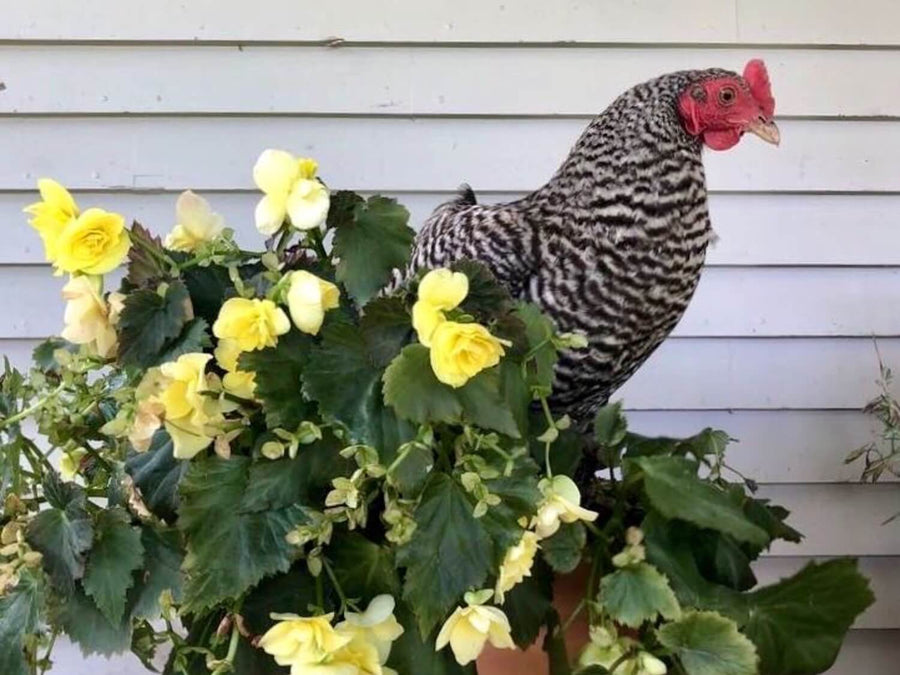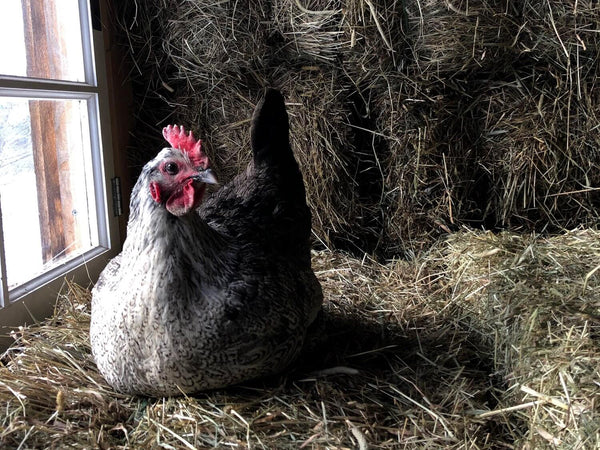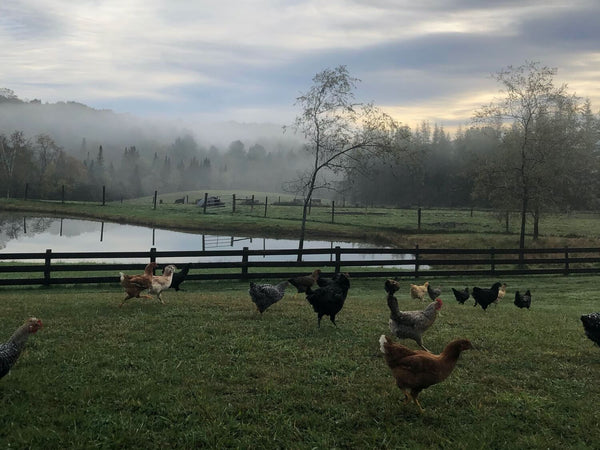
Once your hens are happily ensconced in the backyard with their basic requirements of shelter, safety, food, and water met, you can start to dial in to their specific needs and egg-laying experience by making their accommodations a bit more comfortable and luxe. One area worthy of extra attention is the nest or egg box.

What's the purpose of a nest box?
The purpose of a nest box is to make collecting eggs an easy task, and to help you avoid spending precious hours hunting for eggs out in the lawn. Although they make delightful companions all on their own, your feathered tenants are most likely trouncing around your backyard for the primary purpose of delivering eggs to you daily, among other reasons. Most hens lay an egg approximately every 24-26 hours during the peak of their laying life, which is typically between 6-24 months old. They will still lay into their golden years, but not as often. No matter your egg needs, giving your flock a permanent space dedicated to egg laying is a worthwhile addition to your to do list.
Nest box requirements
A nest box should be placed in the coop to ensure that most, if not all eggs are laid in the same place, making collection a breeze. This addition to your coop can be as simple as a milk crate on its side with a swirl of hay for the hen to rest on. While a handmade wooden box with your hens' names carved along the side might be handsome, it's entirely unnecessary. In reality, there are just a few simple principles to follow, all of which a milk crate can achieve. A nest box should be:
- Dry
- Dark
- Clean
- Private
How to keep a nest box dry
A wet nest box is very unappealing to a hen, and quite frankly can quickly become a filthy place to fetch your eggs from. To avoid this, ensure that your nest box is elevated off the ground and well protected from the elements. This can be done any number of ways, including by stacking together two or more milk crates.
How to keep a nest box dark
A nest box should be always be out of direct light. Some chicken keepers choose to place a small cloth curtain (split in the middle or hanging down halfway) onto the opening in order to give their hens a secure space. Ultimately, you're trying to mimic the type of nest that a bird might naturally create in the wild; a space that feels secure, cozy, and safe from predators.
How to keep a nest box clean
A nest box should have either pine shavings or a swirl of hay as its base, creating a comfortable nest for the hen to sit in and for the egg to remain unbroken. The size of your flock will dictate how often you clean your nest boxes, and this will take some trial and error to figure out. We have several dozen chickens, so I've made cleaning the nest boxes a weekly chore. Inevitably, some of the birds will try to sleep in them, so the poop will pile up.
How to keep a nest box private
While the best place for a nest box is the chicken coop, it should not be placed in a heavily trafficked area. Most hens like to lay in the same place every day, so choosing one location and sticking with it is best. If you have up to six hens, two egg boxes will suffice, providing enough room for each hen to lay in private. This keeps a line from forming (which can turn into a loud affair) and gives the hens options, which they always appreciate.

Collecting eggs from the nest box
Be sure to collect your eggs daily so that you know how exactly how old they are. If the occasional egg is covered in poop, it should be washed before consumption. For clean eggs, however, you can skip the washing process, which will leave the bloom or cuticle (a natural waxy layer on the shell) intact, helping to preserve the egg naturally. As long as it's temperate inside your house, you can keep unwashed eggs on the counter for 2-4 weeks. If you don’t go through them very quickly, simply store them in a carton in the fridge, marking the lay date on the clearly on the carton so that you can eat the older eggs first. When we have more eggs than we can eat, we give them away as presents to our friends without chickens. There are very few people who will turn down a carton of fresh backyard eggs.

Will hens lay eggs without a nesting box?
Some hens—often the younger ones, known as pullets—will lay just about anywhere. You may find eggs on the lawn, under the front porch, or splat upon the ground, having fallen out of the hen while she was perched. Sometimes, older hens grow bored with their nest box and try to shake up their backyard life by finding a new spot to making their own nest, whether it be under a staircase, in your window box, or even in the kitchen if you’ve left the backdoor ajar. We have a white Chantecler that lays an egg in the forest of mint by our front porch like clockwork every morning. One of our Icelandic hens comes into the kitchen (the kitchen door is forever open in the summer) and lays upstairs in my closet. I genuinely do not recommend allowing the latter, as chicken poop in the house is inevitable.

What to do with ground eggs
If you do find eggs around the lawn, in the house, under the porch, and in other strange places, you can simply crack those eggs (as you need them) into a separate bowl to see if they've gone bad. If you suspect an egg is rotten, try cracking it open outdoors. If it is indeed rotten, it will let out a formidable and terrible smell that would be best to keep outside of the house. A rotten egg will feel light in your hand and will most likely be filthy, having been left outside for long enough to go bad. With a well trained eye, you’ll be able to determine whether an egg is rotten without needing to open it.
Done setting up your nest box? Read on to learn about the importance of grazing and free ranging your flock.

A note from Pete & Gerry's: For generations, our family of farmers at Pete and Gerry’s Organic Eggs has been dedicated to revolutionizing the way eggs are produced in the United States. We believe that consumers deserve better eggs from happier chickens living on small farms run by fairly paid farmers, and that’s what we have dedicated our business to. We also believe deeply in the transparency and verification of our standards, which is why we became a Certified B Corporation in 2013. It’s also why our farms meet the rigorous Certified Humane Free Range and USDA Certified Organic standards. We take the welfare of our hens, the sustainability of our farms, and health and happiness of our partner farmers and consumers very seriously. The resulting eggs are ones that stand out in the supermarket; they remind consumers of the eggs from their childhood farms and excursions abroad in Europe. And we're happy to be second best. In fact, we believe that everyone deserves a chance to raise hens right in their backyard and experience the joys that come with raising and growing food at home. Kate MacLean of Longest Acres Farm is here to tell you how.

Kate MacLean lives and works on 120 acres of land known as Longest Acres Farm in Chelsea, VT with her husband Nick, son Leland, and daughter Amelia. As an ex-city-dweller, she gained valuable experience working on friends' and neighbors' farms before making the move to rural Vermont with her family in search of a fulfilling, self-sustaining way of life.
Her breadth of experience in farming and raising countless varieties of chickens and other livestock on Longest Acres Farm not only makes Kate an expert in her field, but an advocate for home grown food and self-sustainability.










